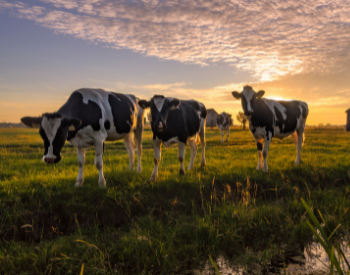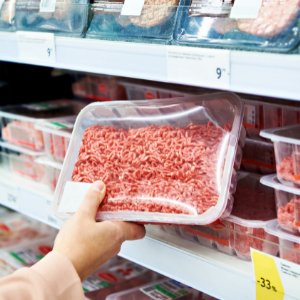There’s a new meat alternative in town, and it’s called lab-grown meat. This type of meat is created in laboratories to reduce animal farming practices. Many consumers have voiced their concerns over the way farm animals are treated and the negative impact meat production has on the environment. With lab-grown meat, the number of farm animals needed would greatly reduce and meat production practices would be eliminated. To find out more about this alternative, we have put together the answers to the most common questions about lab-grown meat.
What Is Lab-Grown Meat Made Of?

Technicians take a sample of muscle from an animal such as a cow, chicken, or tuna and grow these cells into muscle tissue. Some companies combine this tissue with plant-based ingredients to add more nutrients and improve the taste. There are attempts to create synthetic tissue from other animals such as rabbits and shrimp. There are also experiments that are trying to use this method to reproduce leather, milk, and eggs.
How Is Lab-Grown Meat Made?
First, a muscle sample is taken from the animal. From this tissue, stem cells are collected and mixed with amino acids and carbohydrates to multiply them until they differentiate into fibers. These fibers grow and become the muscle tissue or the main part of the meat we typically eat. Biologically, it is considered to be the same as the meat that comes from the source animal.
Is Lab-Grown Meat Vegan Or Vegetarian?
Because lab-grown meat is made from animals, it is not considered to be vegan. On the other hand, vegetarians are still debating whether it is okay to include lab-grown meat in their diet. They approve of animals no longer being slaughtered, but recognize that it is still meat. Some have expressed that they are willing to give it a try but others are still undecided.
 When Will Lab-Grown Meat Be Available?
When Will Lab-Grown Meat Be Available?
There are already some parts of the world, such as Singapore, in which lab-grown has passed safety inspections and is being sold. However, it is still not available in most countries. This is due to lab-grown meat having to pass safety inspections and it being expensive to produce, which will make it expensive to purchase. Startup lab-grown meat companies are working on ways to reduce production costs to make it more accessible for the public. Scientists say that it will take several years before you can find lab-grown meats at your grocery store.
Is Lab-Grown Meat Safe?
The Food and Drug Administration (FDA) has not approved lab-grown meats as of yet and is in the process of figuring out how to regulate them. It should be noted that the Department of Agriculture and the FDA agreed to oversee the production of lab-grown meat. As for the environment, it is safe because it significantly lowers:
- Gas emissions
- The use of land
- The use of water
- Energy costs
Lab-Grown Meat Vs. Plant-Based Meat
While lab-grown meat greatly reduces the use of several resources in meat production, some suggest that there is a better alternative, plant-based meat. This vegan-friendly alternative is cheaper, healthier, and if everyone switches to plant-based meat, meat production would be eliminated. Not to mention, lab-based meat still has issues regarding taste, but don’t count out lab-grown meat just yet. Some individuals prefer to eat meat over plant-based imitations, and scientists are replacing the saturated fatty acids found in traditional meat with healthy fatty acids such as omega-3. Keep in mind that lab-grown meat is still in the process of being improved and has the potential to become a viable option for you and your customers.










